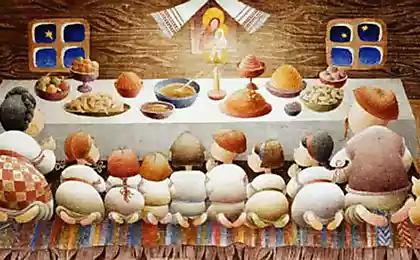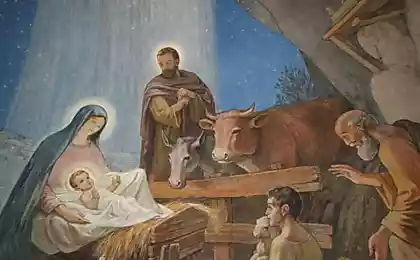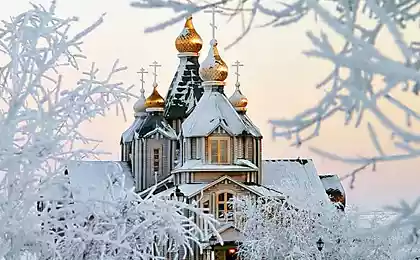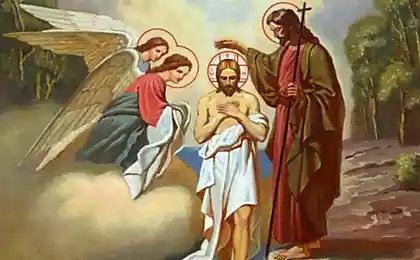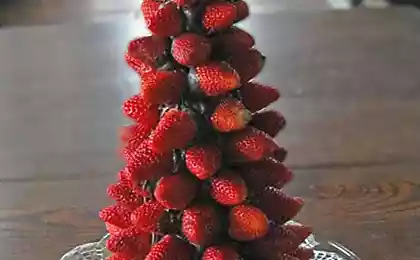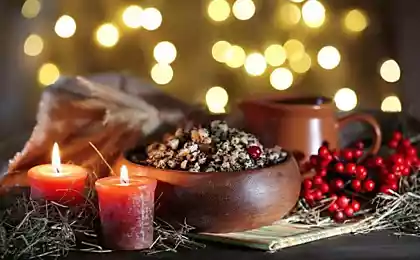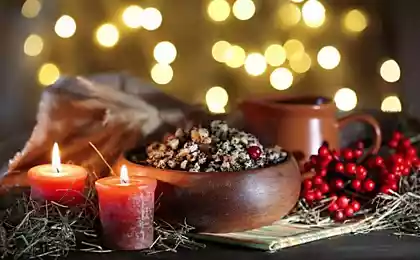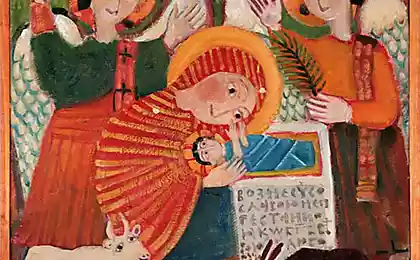161
Our family has always honored traditions, but this year the younger sister refused to celebrate Christmas Eve with us.
I know that in many Ukrainian families this is not the case, but my Christmas is celebrated more than the New Year. I guess it's all about my religious grandmother, who honored the old traditions. They were passed down from generation to generation, adopted by my mother, and then me and my sister. The tradition of the Christmas tree was sacred to our family, and we prepared for the holiday long in advance. But this year my mother is sad: my little sister does not want to spend Holy Eve with us, Christmas Eve. I was going to celebrate with my friends.
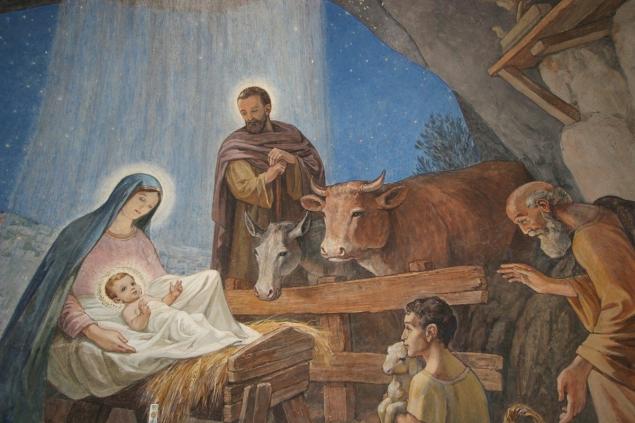
Maybe it doesn’t matter to someone – traditions and superstitions. But in any such ancient custom hidden sacred meaning. It's not just about decorating the house and cooking. First of all, it is about strengthening family values, creating a festive atmosphere and paying tribute to our ancestors. When Grandma told us what each Christmas tradition meant, it was a real mystery. Do you know what all those 12 dishes and a sheaf of hay are all about? I'll tell you.
To be honest, we put the Christmas tree purely nominally, since now it is a symbol of the New Year not only in our region, but all over the world. We were much more responsible in the selection of dishes, because they make up 50% of all Christmas magic. Each dish has its own story on the table.
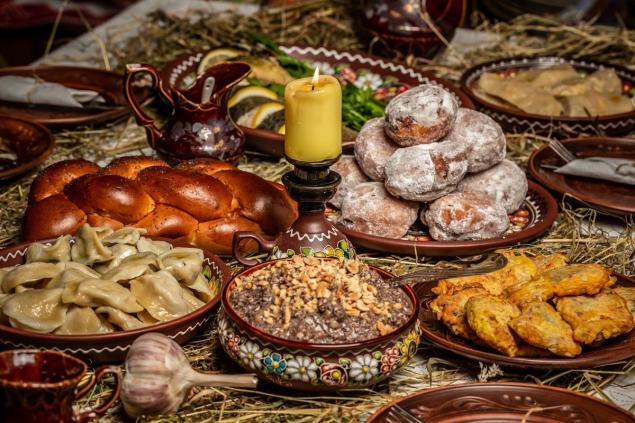
What 12 lean dishes are made to cook on Christmas Eve This is the most famous of all traditions. On Christmas Eve, the evening before Christmas, it is not customary to eat from the belly! This day should be spent in humility, prayer and gratitude. Meat, eggs, cheese and milk are forbidden, so the table should be lean. On the table are 12 dishes, symbolizing 12 months and 12 apostles. Interestingly, sauces and drinks are also considered dishes. Our standard set for Christmas is quite modest. Sometimes we change some of the dishes, experiment with fillings. But the basis of the menu always remains the same.
The whole family sits down at the table when the first star appears in the sky. In the city, the stars are not so clearly visible. But the feast begins no later than 4-5 pm, and, importantly, on this day we do not have breakfast or lunch. Before starting a meal, be sure to light a large wax candle, which can burn until the morning. It is impossible to extinguish it, because then you can scare away all the benefits that it attracts to the house.
One of the children’s favorite traditions is the diduche. My father and I used to go to my aunt in the village for a sheaf when my sister was still very young. And then, over time, they found their perfect sheaf of wheat and put it up every year, just like a tree. This is necessary to attract a good spirit to the house, as well as prosperity and health. In the past, all of these things had a lot to do with what the harvest would be like next year. So it turns out that the symbol of prosperity was a sheaf of mature wheat.
We usually stop there, although I know that my grandmother would like to fulfill all the traditions. My mother once told me that when she was little, it was.
For example, my grandmother always covered the tablecloth with straw. And at the corners of the table, right under the tablecloth, she put peeled cloves of garlic to scare away evil spirits. They also had a tradition of putting an empty plate, mug and appliances in order to respect the dead. In my mother’s house, they paid tribute to my grandfather, but my sister and I did not catch my grandfather and this tradition has sunk into oblivion.
I've always loved preparing for Christmas: finding and bringing a divine diduche, distributing responsibilities in the kitchen and preparing gifts. And the fact that on this day, the whole family sit down at the big table and talk until late at night. You know, in everyday life, we simply do not have time to share with loved ones everything that has accumulated. You won't get enough of phone calls.
It seems that this year everything will be a little different, and Masha will not come. She is now an adult and will soon be 20 years old. And for her, the Christmas tradition is not as interesting as student life and new acquaintances. They're having a student party at the university on that day, but I don't know if any of them want to spend time with their family.
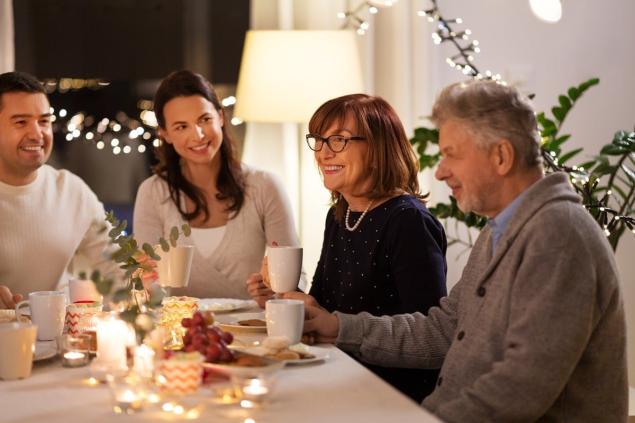
Mom says it's all the time. No one remembers the old traditions, only we are the white crows of the city. But in the villages, where my aunt lives, they still revere the spirit of Christmas and remember the good old days. We're still going to spend Christmas Eve the way we've done for years, but I'm going to miss my sister a little bit. What do you think about that? Are customs for old people? Or does the Christmas tree have any significance these days?

Maybe it doesn’t matter to someone – traditions and superstitions. But in any such ancient custom hidden sacred meaning. It's not just about decorating the house and cooking. First of all, it is about strengthening family values, creating a festive atmosphere and paying tribute to our ancestors. When Grandma told us what each Christmas tradition meant, it was a real mystery. Do you know what all those 12 dishes and a sheaf of hay are all about? I'll tell you.
To be honest, we put the Christmas tree purely nominally, since now it is a symbol of the New Year not only in our region, but all over the world. We were much more responsible in the selection of dishes, because they make up 50% of all Christmas magic. Each dish has its own story on the table.

What 12 lean dishes are made to cook on Christmas Eve This is the most famous of all traditions. On Christmas Eve, the evening before Christmas, it is not customary to eat from the belly! This day should be spent in humility, prayer and gratitude. Meat, eggs, cheese and milk are forbidden, so the table should be lean. On the table are 12 dishes, symbolizing 12 months and 12 apostles. Interestingly, sauces and drinks are also considered dishes. Our standard set for Christmas is quite modest. Sometimes we change some of the dishes, experiment with fillings. But the basis of the menu always remains the same.
- Kutya is a sweet wheat porridge, which for centuries was prepared for holidays. Christmas Eve is even called the evening of the First Cuti, and eat this dish first, and then everyone else. Kutya symbolizes prosperity, and honey in it is the word of God.
- Lent soup is a must. We usually make green borscht without an egg, but sometimes it can be a mushroom yushka with cereal.
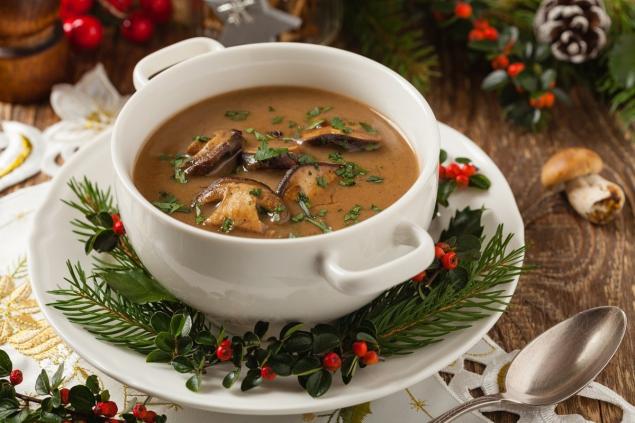
- Varens with potatoes, mushrooms, cabbage and even peas. Ukrainian traditions are quite humorous, so old people say: it’s like a dumpling in oil to ride.
- Fish! On this fasting day, the fish is a symbol of believers and Jesus Christ himself. So mom always bakes medium-sized trout with lemon, so everyone has enough of a piece. Sometimes, if the whole could not be found, she prepares her ear from the backs for the first dish.
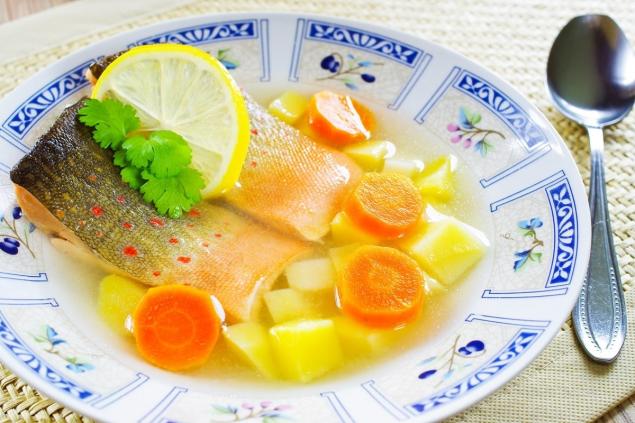
- Pumps are sweet and unsweetened. They symbolize the saints in heaven who found paradise because they believed in Jesus Christ.
- Lenten blueberries with rice and mushrooms. One day I offered to make a Georgian dolma, but my grandmother just shook her head – not according to our traditions.
- Bread is the head! Without it, the table is not festive. It is better, of course, that the bread is homemade, freshly baked.
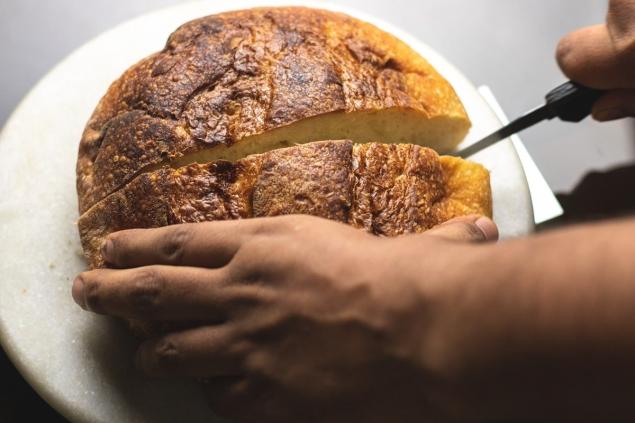
Unsplash - Bread is the head! Without it, the table is not festive. It is better, of course, that the bread is homemade, freshly baked.

- Pickles are an integral part of Slavic traditions. Salted cucumbers and tomatoes fly off the table first.
- Lent salads: beet, potato or just a salad of fresh vegetables. Although this is not entirely correct, in ancient times only root vegetables were preserved in winter. I think my grandmother was persuaded to make such a compromise by my mother, who can't stand beets.
- Stewed sour cabbage as a side dish.
- Boiled potatoes or stewed potatoes with a vegetable roast. It goes well under baked fish!
- Knot or jelly. When I was a kid, I didn't like both of these drinks, but now I can't get away from them.
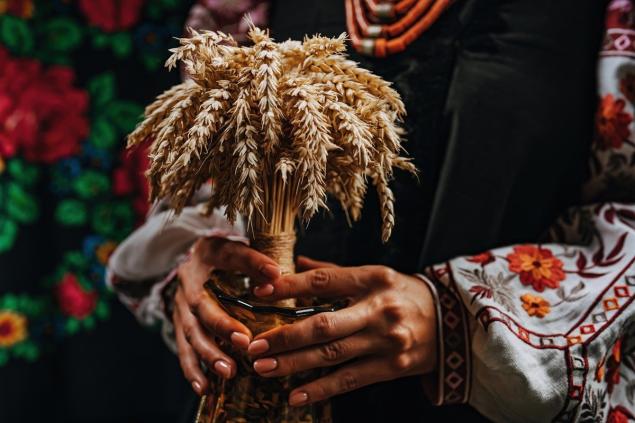
The whole family sits down at the table when the first star appears in the sky. In the city, the stars are not so clearly visible. But the feast begins no later than 4-5 pm, and, importantly, on this day we do not have breakfast or lunch. Before starting a meal, be sure to light a large wax candle, which can burn until the morning. It is impossible to extinguish it, because then you can scare away all the benefits that it attracts to the house.
One of the children’s favorite traditions is the diduche. My father and I used to go to my aunt in the village for a sheaf when my sister was still very young. And then, over time, they found their perfect sheaf of wheat and put it up every year, just like a tree. This is necessary to attract a good spirit to the house, as well as prosperity and health. In the past, all of these things had a lot to do with what the harvest would be like next year. So it turns out that the symbol of prosperity was a sheaf of mature wheat.
We usually stop there, although I know that my grandmother would like to fulfill all the traditions. My mother once told me that when she was little, it was.
For example, my grandmother always covered the tablecloth with straw. And at the corners of the table, right under the tablecloth, she put peeled cloves of garlic to scare away evil spirits. They also had a tradition of putting an empty plate, mug and appliances in order to respect the dead. In my mother’s house, they paid tribute to my grandfather, but my sister and I did not catch my grandfather and this tradition has sunk into oblivion.
I've always loved preparing for Christmas: finding and bringing a divine diduche, distributing responsibilities in the kitchen and preparing gifts. And the fact that on this day, the whole family sit down at the big table and talk until late at night. You know, in everyday life, we simply do not have time to share with loved ones everything that has accumulated. You won't get enough of phone calls.
It seems that this year everything will be a little different, and Masha will not come. She is now an adult and will soon be 20 years old. And for her, the Christmas tradition is not as interesting as student life and new acquaintances. They're having a student party at the university on that day, but I don't know if any of them want to spend time with their family.

Mom says it's all the time. No one remembers the old traditions, only we are the white crows of the city. But in the villages, where my aunt lives, they still revere the spirit of Christmas and remember the good old days. We're still going to spend Christmas Eve the way we've done for years, but I'm going to miss my sister a little bit. What do you think about that? Are customs for old people? Or does the Christmas tree have any significance these days?
Mark Zuckerberg is actively building a bunker in Hawaii, it seems the billionaire knows more than we do
How to keep your phone screen in perfect condition?









